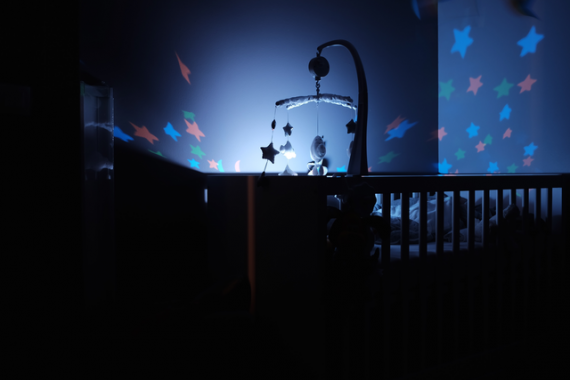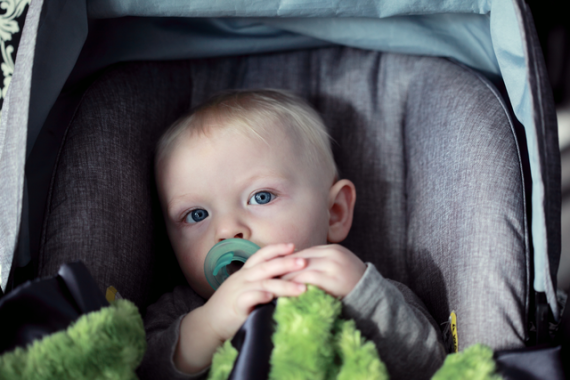Parenthood and sleep deprivation seem to go hand-in-hand, but a lack of rest can put both parents and their kids at risk. PLN has your guide to encourage deeper and longer sleep in your baby.
How important is sleep?
We all know how great we feel after a solid eight hours of rest and how hard it is to get through a day with broken sleep, but how important is sleep? It turns out, sleep is a cornerstone for good physical and mental health. In fact, failure to get adequate rest can put your safety at risk.
Have you ever gone on a long drive and realized that you don’t remember getting to your destination? According to the National Heart, Lung and Blood Institute, you likely experienced micro-sleeping, an involuntary reaction by a sleep deprived body. Driving while sleep deprived can be as dangerous as driving drunk.
The sleep-deprived family
A lack of sleep can affect your ability to parent by inhibiting your ability to control emotions, make decisions and can contribute to depression. Children who do not get enough sleep may have problems getting along with others, feel sad or depressed and get lower grades in school. It can also impact their growth and development.
Newborn sleep (or lack thereof)
While you can’t expect a newborn to sleep through the night, you can take steps to ensure that your baby is comforted and sleeping better by embracing the concept of the ‘fourth trimester’. According to Dr. Harvey Karp, author of “The Happiest Baby on the Block”, simulating the womb environment is key to settling young babies.
To do this, Karp encourages parents to utilize the five S’s in order to stimulate the ‘calming reflex’, which is the discovery that babies have an ‘off’ switch for crying and an ‘on’ switch for sleep that you can activate by imitating certain sensory aspects of the womb.
To imitate the womb, try using the five S’s:
Swaddle—Swaddling recreates the snugness of the womb and decreases startling.
Side or stomach—While the back is the only safe position for baby to sleep, allowing baby to lay on their stomach or side will help them mellow in no time.
Shush—Babies don’t need silence to sleep. In the womb, blood flow is louder than your vacuum. You can either make a “shusssh” sound close to your baby or use white noise.
Swing—There is a lot of movement in the womb. Babies need fast tiny motions to be soothed while crying.
Suck—Many babies will soothe easier with a pacifier. It is ‘the icing on the cake’.
Improving your Infant’s sleep
While disturbed sleep is expected with young babies, as time goes on, the need for a good night’s sleep becomes more and more important to the health of the parents, both physical and mental.
In fact, a study found a link between poor sleep in infants and the presence of postpartum depression.
So what can parents do to improve the quality of sleep in their infants?
Infant Sleep Educator Polly VandenBerg suggests that parents consider sleep education rather than sleep training. Sleep training is a child learning to sleep on their own by being left for either an increment of time or all together (cry it out).
“Sleep education is working with families knowing that babies wake up but finding gentle ways to get baby back to sleep.”
VandenBerg says many parents have unrealistic expectations of sleep patterns for their babies. She offers a ‘gentle parenting’ approach where she advocates for safe bed sharing, room sharing, rocking and cuddling baby to bed so both baby and parent(s) are able to get more sleep.
“There is a whole lot of scare tactics and misinformation around bed sharing. If it is done safely, bed sharing has no greater risk than crib sleeping,” she says.
Mixing up their days and nights
Babies are born without the ability to make enough melatonin-the hormone that alerts the body it’s time to fall asleep. While newborns’ erratic sleep schedule is the result of their frequent feeding and diapering requirements, there are things parents can do to encourage their children to develop their circadian rhythm, or their ability to set a day and night sleep/wake schedule.
Expose your baby to fresh air and sunlight: Generations ago babies were left outside during the afternoon in order to get their daily dose of fresh air and sunlight. Although this has practice has been mostly abandoned, the benefits of sunlight and fresh air are still needed for modern parents. According to a study from the UK, infants who were exposed to early afternoon sunlight were able to set their circadian rhythm earlier and sleep better at night. Taking baby for a daily afternoon walk is a great way to get both of your daily doses of vitamin D as well as an increase in endorphins for you. You can even let baby enjoy an outdoor nap with outdoor beds like the Fisher-Price On-the-Go Baby Dome. It protects baby from the sun and bugs so they can sleep or play outside in temperate weather.
Breast milk: While babies generally do not produce enough melatonin on their own to fall asleep on their own at night until about two months old, they are able to get melatonin from breast milk. This can aid in deeper sleep.
Social cues: In the early weeks of life, babies are learning the social cues to distinguish night and day. A daily walk and lots of play during the day coupled with dimmed lights at night can help get baby on a schedule.
Bedtime routine: Many parents will set a routine for baby at night to help them understand that it is now time for bed. A simple bath, massage, lullaby or books can help settle baby and get them ready to fall asleep.
Naps
Rest isn’t just important for babies, it can be a great opportunity for parents to catch their breath and recharge. According to the Mayo Clinic, establishing a consistent nap schedule is key to better naps. Naps need to be consistent in both the time of the nap and the length of the nap.
Vandenberg says that while a nap schedule isn’t necessary, babies need a rhythm to their day.
“Having a predictable rhythm to their day is a lot better for babies than having a nap at 10 and a nap at two,” she says. “That will also allow the parent to have a lot more flexibility to meet with friends, have a support system, get out of the house. That is really important for parents too.”
Having a go-to travel sleep system is key for maintaining your baby’s nap schedule. The Fisher-Price Deluxe Rock and Play Bassinet is a great option for naps on the go or to store at grandma’s house. It can sway baby to sleep with a gentle nudge and provides a comfortable place to sleep and play. It can also be folded up easily for storage.
Putting baby down for a nap
Make sure the room is dark, cool and quiet. Blackout curtains are a good way to keep the room dim. You can use a white noise machine or a fan to cancel out any noise and help soothe baby. Some bassinets, such as the Fisher-Price Soothing Bassinet offer features such as vibration, projection lights and swaying motions to help soothe infants.
The sleep cycle of a baby is much different than an adult. They are light sleepers who are very active while dreaming and may need a place they can rest undisturbed.
Look for signs that your baby is getting sleepy. These can include rubbing their eyes or general fussiness.
For sleep training, put the baby to bed tired but not asleep: Put baby into bed when they are in a groggy state. They may fuss for a few moments in bed before falling asleep. If they continue to fuss, you can go in and rub their back or soothe them with your voice and then repeat the process until they are asleep. Eventually, your child will learn to self-soothe and fall asleep independently.
How much sleep does my baby need?
Newborn: Newborns will sleep on and off during the day. They can average about 15 hours of sleep a day.
3 to 6 months: Babies will nap three times a day up to two hours each stretch. They will average about 14 hours of sleep a day and will likely wake once a night.
6 to 12 months: At this point, your baby will transition to a more adult pattern of sleep with the longest stretch of sleep at night. They will sleep an average of 11 hours at night and have two naps of about one to two hours.
Of course, just as two babies are not alike, each baby’s sleep schedule may also vary. There are also the fun curveballs of teething, gas and other ailments that can interrupt sleep as well. The best person to speak to if you have concerns over your baby’s sleep if your healthcare professional. Stay tuned for our next article in this series, where we take a closer look at the sleep habits of toddlers!
*Opinions expressed are those of the author, and not necessarily those of Parent Life Network or their partners.

 Partner Post
Partner Post







